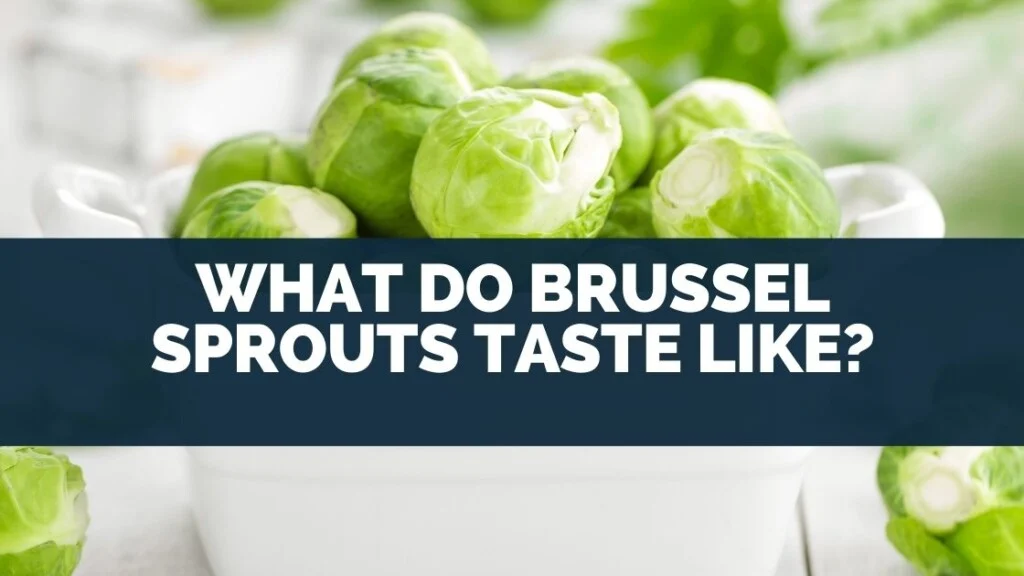
There are some foods that large numbers of people simply don’t like, like Brussel sprouts, which are frankly an acquired taste. If they weren’t so good for you, many cooks people would just avoid them. However, Brussel sprouts have many nutritional benefits and can even help lower cholesterol levels in the body.
What makes Brussel sprouts an unpopular vegetable, in some people’s opinions, is their flavor. However, before you outcast these excellent vegetables, it would be prudent to find what Brussel sprouts taste like in reality. Specifically how the taste is described and classifed.
Is it sweet, bitter, or awful? Let’s find out. But first, allow us to explain what Brussel sprouts are.
Table of Contents
What Are Brussel Sprouts?
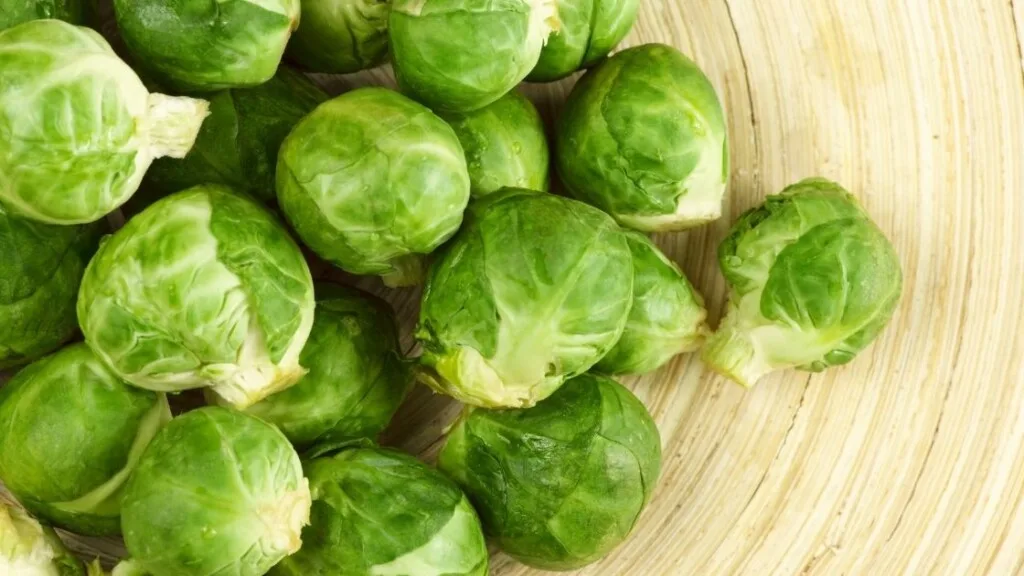
In addition to cabbage and kale, Brussels sprouts are a type of vegetable that belongs to the brassica family.
They have a long stem from which they generate a large number of small green balls that resemble miniature cabbages. Here you will find the sprouts, which are what we consume.
Individual sprouts resemble small cabbages in appearance. Once the heavier outer leaves have been removed, the smooth glossy surface is made up of numerous layers of small leaves closely packed onto a thicker stem.
Brussels sprouts gained their name from being grown in Belgium in the 16th century. They’re loaded with vitamins A, C, and K, as well as fiber, potassium, and folate.
Many individuals, especially youngsters, find the taste and smell of Brussels sprouts revolting.
What Do Brussel Sprouts Taste Like?
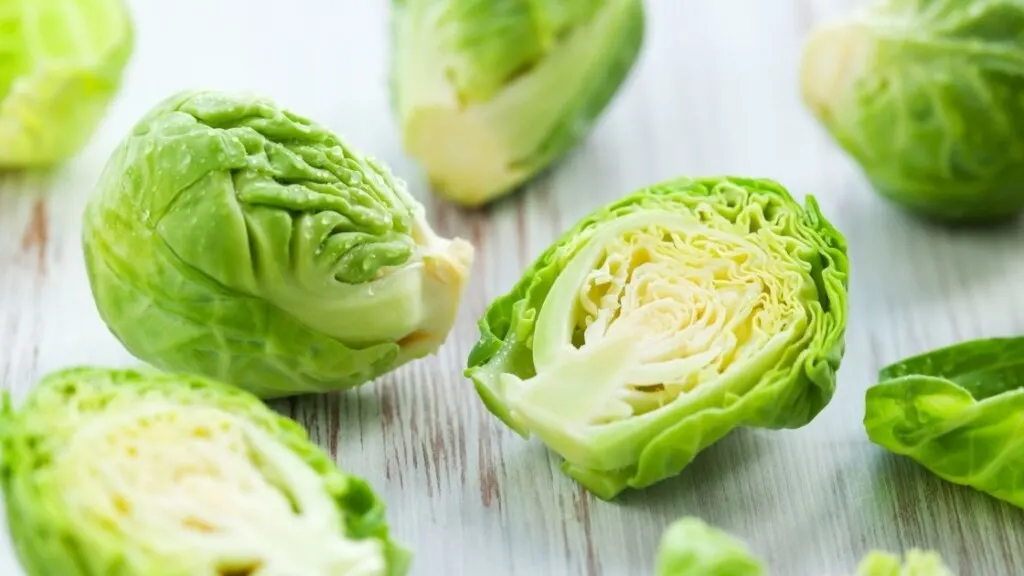
The flavor of Brussel sprouts, like all vegetables, is determined by how you prepare them. There are many distinct varieties to choose from, so we’ve compiled a list of the most important details:
- When cooked properly, Brussels sprouts have a flavor that is deep, smokey, and nutty. This is a cross between green cabbage and broccoli, although it has a stronger flavor than either of those vegetables alone.
- When Brussel sprouts are cooked incorrectly, they get a harsh flavor that becomes more prominent. This typically occurs when they are prepared for an extended period of time or when they are not appropriately seasoned.
- Brussel sprouts are a type of vegetable that can be consumed uncooked. The flavor of raw Brussel sprouts is similar to a slightly stronger type of cabbage.
- The flavor of the brussel sprout is determined by its size. The flavor of younger sprouts is superior and sweeter than that of more developed ones.
If you wish to get the most flavor out of your well-seasoned Brussel sprouts, toss them in a pan with some bacon pieces and roast. Roasting will bring out the wonderful nutty flavor while also enhancing the sugars and producing a little crunch on the outside. Delicious!
However, not everyone will be in agreement, and there are many brussel sprout recipes to choose from. Freshly steamed sprouts with a knob of butter and a twist of freshly ground black pepper are rarely a mistake. This will result in a considerably lighter and more vibrant taste to your Brussel sprouts than roasting them.
Why Should We Eat Brussel Sprouts?
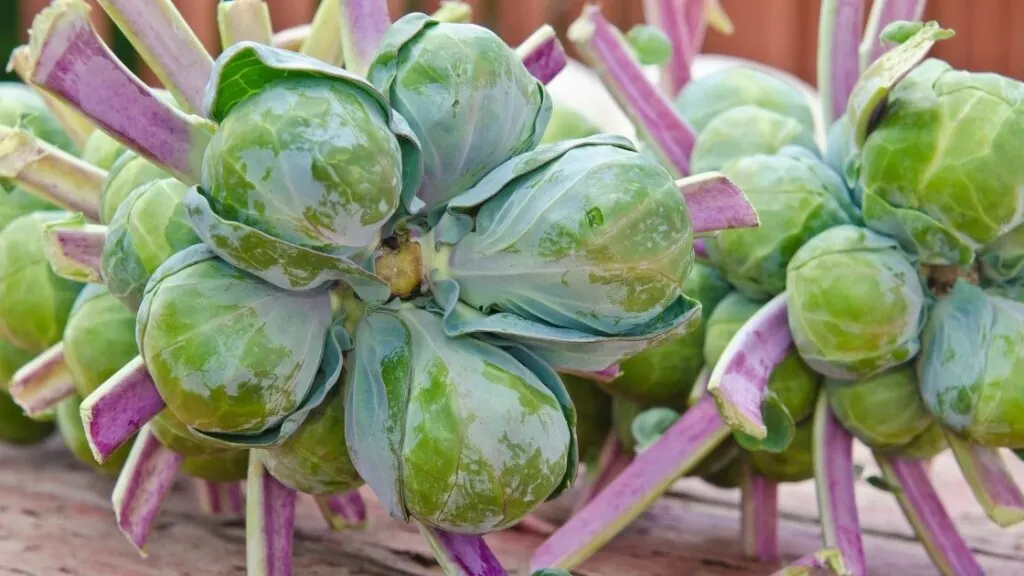
Vegetables are considered to be the essential building blocks of life because they contain high levels of nutrients which will increase your overall health.
Brussels sprouts are an excellent source of Vitamin C. They also contain Vitamins E, A, K, and B6, numerous other minerals including iron, zinc, folate, potassium, calcium, and dietary fiber.
The antioxidants present in Brussel sprouts protect your cells from damage, making them more resilient. These antioxidant compounds also reduce inflammation of the joints and muscles, helping to control joint pain.
Brussels sprouts are rich in omega-3 fatty acids which act as powerful anti-inflammatory agents. They naturally lower bad cholesterol (LDL) and enhance good cholesterol (HDL) levels in your body.
How Do You Store Brussel Sprouts?
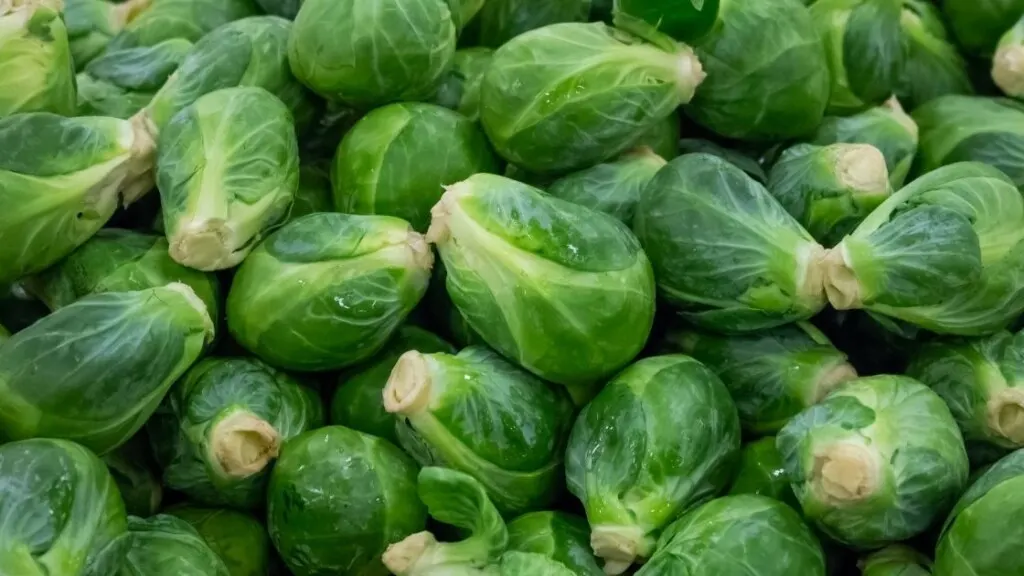
Brussels sprouts are harvested during the colder months of October through March, although fresh Brussel sprouts are available year-round.
When storing your Brussel sprouts at home, it is best to keep them in a plastic bag inside your refrigerator’s vegetable crisper drawer. If you choose to keep them outside of the refrigerator, use a damp paper towel to cover your sprouts and keep them in a cool, dark place.
If you live in a rural location, you may be able to purchase your Brussel sprouts with the stalk still intact. Sprouts will keep for a lot longer on the stalk if kept in a cool, dark place with the cut end of the stalk submerged in water.
Sprouts are commonly sliced off the stalk before being sold. These should be kept in the refrigerator and are best consumed within three days after cutting.
They will thereafter still be edible, but they will have a stronger taste.
If the stems and leaves on the Brussel sprouts begin to yellow and spots appear, they are no longer fresh.
You can also read: How Do You Store Leafy Greens in the Fridge?
What Are Tips For Buying Brussel Sprouts?
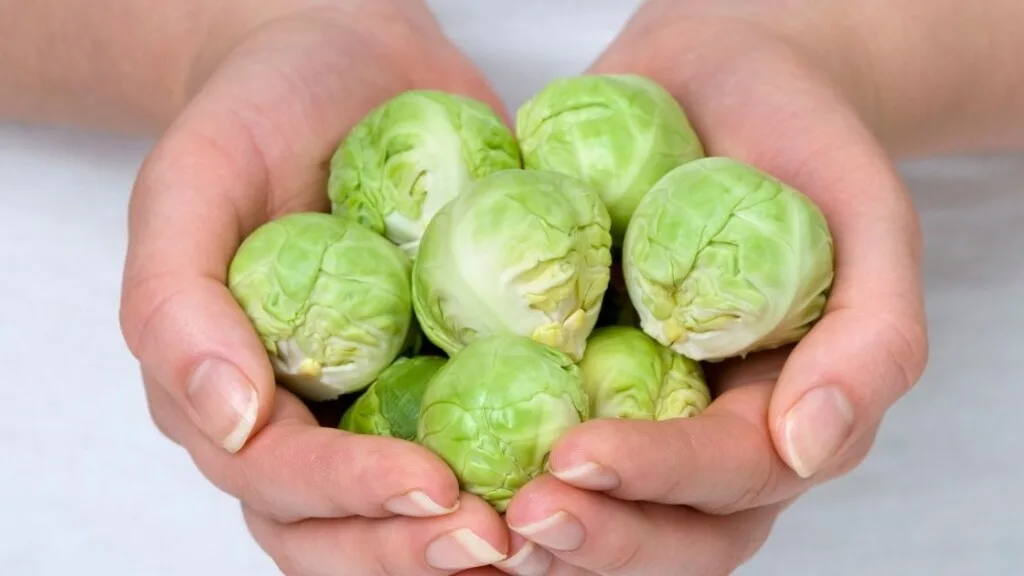
The ideal time to purchase these vegetables, like all others, is during their peak season.
Autumn and winter crops are often planted in the fall when soil is still cold and wet. They’re at their best when harvested after the first hard frost. The plant begins to make sugars as a result of this chilly snap of weather, resulting in a delicious and sweet flavor.
Look for a thick, healthy stem when purchasing Brussel sprouts on the stalk. Look for clean and healthy outer leaves in loose Brussel sprouts. Avoid any yellowing or damaged leaves.
Smaller Brussel sprouts will have a sweeter and more delicate flavor, while the larger ones will have a stronger cabbage-like taste. Brussel sprouts may also be found in the freezer section of your local store out of season.
Although these will not have the same crunchy texture as a fresh sprout, they may be an acceptable substitute if you want to expand your diet.
Final Thoughts
Cooking methods have an impact on the flavor of Brussel sprouts as well as any other vegetable. A wide variety of options are available. Brussels sprouts are often viewed as an oddity when it comes to vegetables, although they do have many positive nutritional benefits. If you haven’t already, give this delicious and healthy vegetable a try.
You might just find a new favorite in Brussel sprouts.

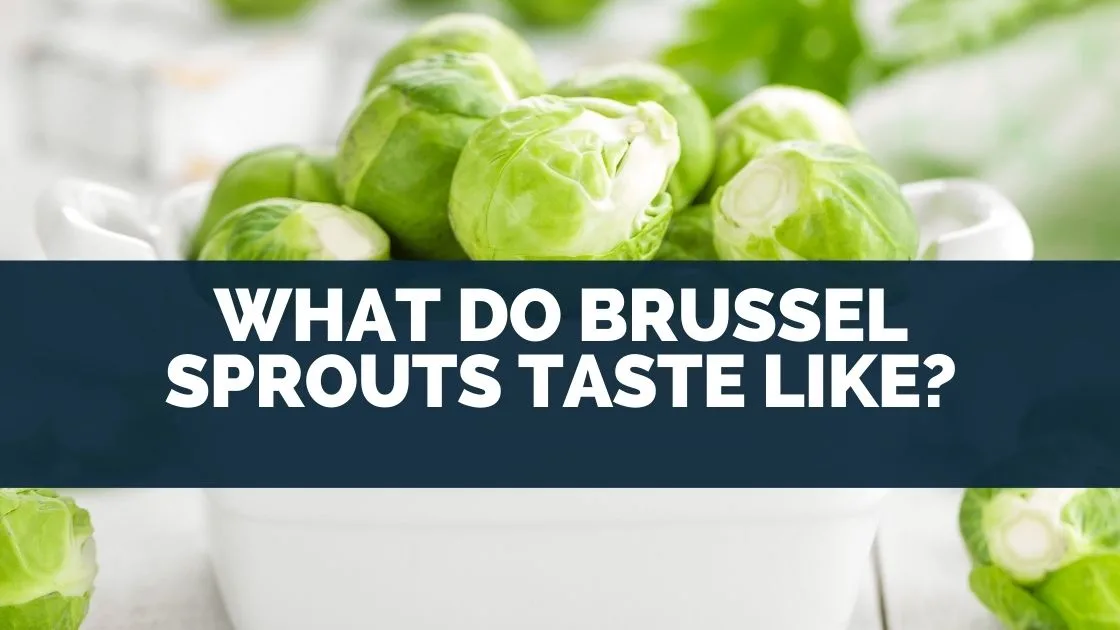
Leave a comment